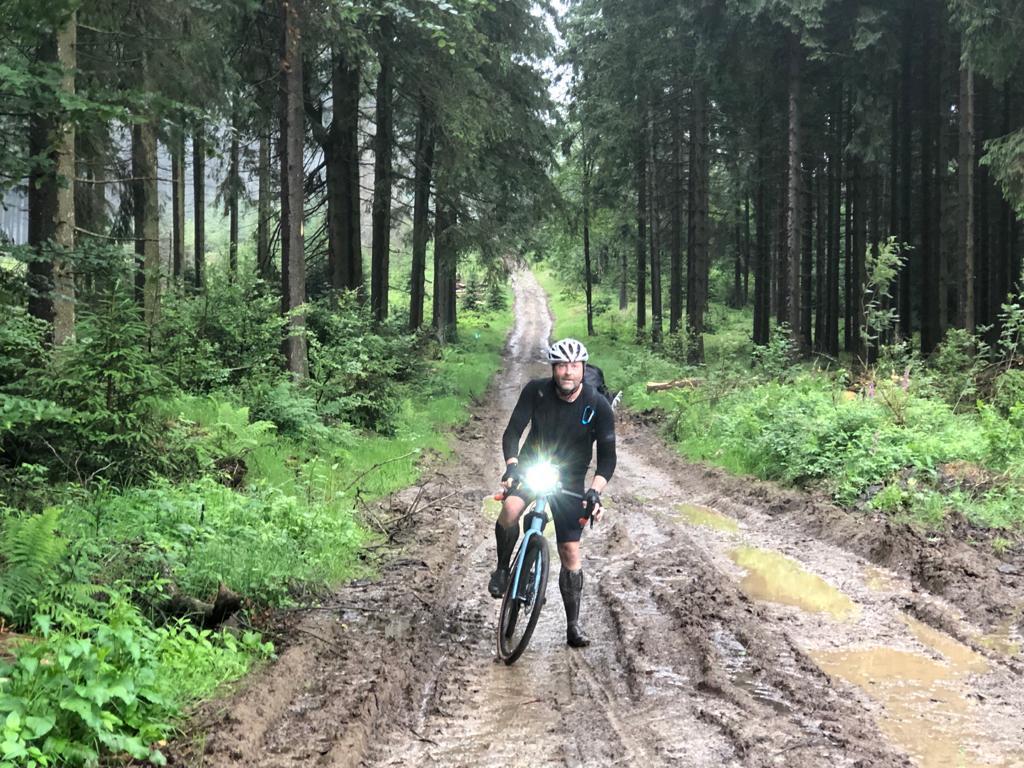
Crohn's disease and sports can go together.
Meet Mark Weetink, living proof that Crohn's Disease and sporting passion can go hand in hand. His disease was diagnosed 23 years ago, but that has not stopped him from participating in endurance sports. He has been a cyclist for about 15 years and loves going out on his gravel bike. This is his story about how he combines his illness with sports.
For Mark, the disease is chronic intestinal inflammation, which means it won't go away. Fortunately, he says that he has it under control, but for others it may be more difficult. Some people not only have severe physical complaints, but also stomach pain or loss of appetite. It is not known exactly how people can get the disease. “You have to be lucky with which form you have, but you have a major role in how you deal with the disease,” says Mark.
Important factors
According to Mark, there are a number of factors that play a role in the severity of the symptoms of the disease. However, he emphasises that this is different for everyone. “For example, some people cannot exercise because of the disease,” which, according to Mark, is a factor that has recently become known that it can actually help against the symptoms of the disease. Fortunately, there are other factors that can help against complaints: “A number of things are important: your lifestyle, rest, exercise, nutrition, limited alcohol consumption or preferably no alcohol and no smoking.”
Mark himself is not suffering much from the symptoms at the moment. “For me it is very much under control.” For example, he hardly drinks or smokes. In addition, he is often concerned with how he can live a healthier life. “The older I get, the better I live and every year it can get better.” His latest addition for a better lifestyle is Kalkman products. “Kalkman helps make dosing easier, and I don't have any problems with my intestines as a result of using natural products.” He gives the example that he sometimes spent days on the road eating the same type of food: “That had a huge impact on my intestines, because of all that artificial food.” For him, this nutrition is not only an addition to his sport, but also to dealing with the disease.
The main reason why Mark adheres so strongly to this lifestyle is because he describes himself as a real bon vivant: “Quality of life comes first. To the extent that I can influence that, I want to contribute to it.”
'Unknown is a deterrent'
For Mark it was a bit of a shock at first. It was the end of his student days. He played hockey and sailing, and was not concerned with the disease at all: “Then I took the side effects for granted. I was happy that I could largely continue my normal life.” As he grew older, this attitude changed: “At a certain point you get older and you think things can be different. Then you consult with doctors and try things out. Then your quality of life is increased.” Endurance sports really helped him, but he did not necessarily start because of the illness: “That was more of a practical choice, because I had a child, and hockey took a lot of time,” he says laughing. However, he thinks endurance sports are much better because it makes him much fitter: “It ensures better health.”
“During your student days you think 'long live the fun, no one has any problems', but then you do.” People were sometimes shocked when he said he had the disease: “I don't hide it, but I don't say it right away either.” His colleague recently heard for the first time that he had the disease. “He was shocked and asked 'are you okay, can you do it', and then I said 'Yes, of course, there is nothing wrong with me'.” But according to Mark, this occurs with more diseases: “The unknown is a deterrent, I think.”
Step-by-step
That is why, according to Mark, you should mainly listen to your own body and not pay too much attention to all kinds of unsolicited advice. “Try out what works for you step by step, because you can do more than you think. Don't be put off by advice from others.” Mark sometimes experiences that people are full of unintentional advice (try this or that). “Choose your own direction, you know your body best.” For example, he knew that he could play clay for several days, although his gastrointestinal/liver doctor had not thought of this. “Through good cooperation with your doctor and your body, and by taking good care of your body, you can do more than you think.”
By thinking this way, he really enjoys cycling outside on the gravel bike. “I do that 99% of the time.” Because of all the adjustments he likes it much more. “Being outside, getting dirty, racing, that makes me very happy.” At first, Mark just did road cycling, but since corona he has switched to gravel biking: “That is so much more fun, much more intensive. You are accelerating, braking, climbing, technical all the time.”
